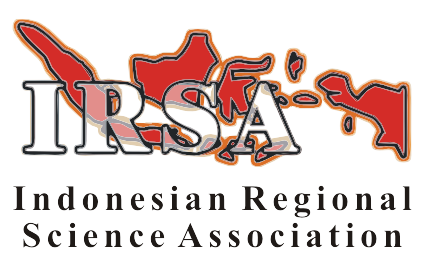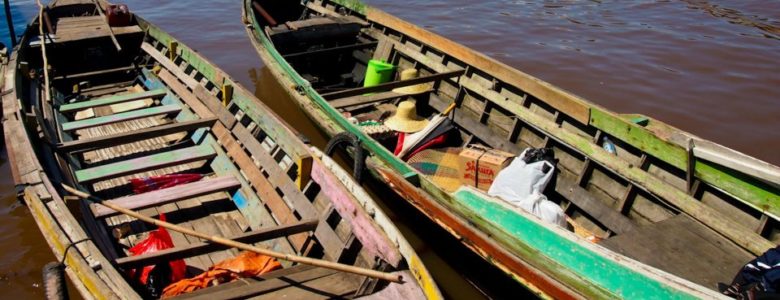January 3, 2019
HALF DAY SEMINAR ON DISASTERS IN INDONESIA: FROM EARLY WARNING SYSTEM UNTIL RECOVERY PROCESSES
13 November 2018
LPEM Room (7th floor), Faculty of Economics & Business
Universitas Indonesia, Jl. Salemba Raya 4 Jakarta 10430
INTRODUCTION
Indonesia is the largest archipelagos located on the ring of fire in the basin of the Pacific Ocean. The country consists of over seventeen thousands of islands with 127 active volcanoes and coastline as long as approximately 99,000 km. Indonesia, hence, is among the countries which are prone with disasters related to earthquakes, tsunamis and volcanic eruptions. One of the major disasters in the last 20 years was caused by the Indian Ocean earthquake and tsunami in 2004; severely affecting Aceh province and the island of Nias. The number of people killed due to this natural disaster was approximately 170,000 people.
After Indian Ocean earthquake and tsunami in 2004, Indonesian government has tried to develop a comprehensive national disaster management system. It started from enacting the Disaster Management Law (Law No. 24/2007) in 2007, establishing the National Agency of Disaster Management (BNPB), Under the coordination of BNPB, several initiatives on early warning system and procedures for rescue and relief activities has been develop. It supposes that by now Indonesia would be able to better manage disasters compared to the situation in Aceh due to the the Indian Ocean earthquake and tsunami.
Recently, at approximately 8pm on 28 September 2018, an earthquake with a magnitude of 7.5 Richter scale occurred approximately 77 km north from the city of Palu, Central Sulawesi. The earthquake was followed by tsunami and land liquefaction affecting mostly areas in Donggala district and the city of Palu. Due to the combined of these disasters, it is estimated approximately 2,000 were killed and more than 500 thousand people affected. This Palu earthquake and tsunami triggered another pressure to the Indonesian government to be able to better manage natural disasters; meaning be able to maintain its early warning system throughout the country, better conduct rescue and relief procedures when disasters occur and effectively reconstruct the areas affected by the disasters.
The recent earthquake in Palu, however, showed that Indonesia is still struggling to better manage a large-scale disaster. The early warning system did not seem to work, a standard operating procedure to arrange rescue and relief from related ministries/agencies, if it is available, did not seem to be helpful. Number of causalities might be minimize, if there is a good and effective standard operating procedure for rescue and relief activities.
To support the Indonesian government to be able to keep improving its ability to manage disasters, IRSA plans to conduct two activities encouraging better research activities in the country related to natural disasters. The first activity is to conduce a half day seminar on disasters in Indonesia. The second activity is the 15th IRSA International Conference in Banda Aceh on 22-23 July 2019. The theme of the conference will be on Disasters and Regional Development.
OBJECTIVES:
The specific objectives of this seminar are:
- to provide inputs to the Indonesian Government in conducting the recovery process in Lombok and Central Sulawesi and managing disaster incidences in the country;
- to encourage more researchers to work on the issues of disasters in Indonesia, hence better inputs to the Indonesian government can be provided in the future.
RESOURCE PERSONS
Speakers are from various institution who had extensive work and concern to mitigate as well as respond on natural disaster issues.

BA (UGM), M.Sc & Ph.D (University of Leeds)
Dwikorita is the head of Indonesian Agency for Meteorology, Climatology and Geophysics (BMKG). She was also former Rector of Gadjah Mada University (2014- 2016). Her research focuses on landslide hazard, early warning system and policy framework for mitigation and risk reduction in Indonesia

BA (Univ. Tadulako), M.Sc (Université Grenoble Alpes), Ph.D (Université Nice Sophia Antipolis)
Ahlis is a senior lecturer at the Faculty of Economics, Tadulako University, Palu. His research interest includes regional labour market, trade, poverty and development economics.

BA (UGM), M.Sc (Nagoya Univ.), Ph.D (Univ. of Tokyo)
Sumedi is director of Directorate of Disadvantaged Regions, Transmigration and Rural Development at Ministry of National Development Planning/National Development Planning Agency. He has published articles concerning poverty and decentralization in Indonesia.

BA (ITS), M.Sc (Univ. of Vermont), Ph.D (Cornell Univ.)
Syaiful is the founding senior lecturer at the Statistics Department and the Deputy Director of the Research Centre for Social Science and Cultural Studies, Syiah Kuala University, Banda Aceh. He was the co-founding director of the Aceh Institute and the former Executive Director of the International Centre for Aceh and Indian Ocean Studies (ICAIOS). His areas of interest include applied econometrics, social statistics, demography, survey methods, and quantitative methods for policy analysis. In post 2004 Aceh tsunami, he has been conducting research on disaster and the “sociology of disaster”, as well as issues related to regional conflict, peace and development. He has published articles in, among others, Natural Sustainability, Ocean and Coastal Management and Indonesia.

BA (Widya Mandira Catholic University), M.Sc (Univ. of East Anglia), Ph.D (Univ. of Born)
Jonathan is a senior lecturer at the Emergency and Disaster Management Unit, School of Health, Charles Darwin University. His research focus includes understanding macro and micro level disaster governance, complex network theory application in disaster studies, institutions and institutionalisation of disaster risk reduction. His doctoral research has been one of the first systematic studies on disaster governance and emergency management, looking at institutions and governance practice in disaster reduction in the countries around the world. He has published articles in, among others, International Journal of Health Geographic, Maritime Policy and Management, Journal of the Singaporean National Academy of Science.


 The Indonesia Regional Science Association (IRSA) in collaboration with Lambung Mangkurat University (UNILAM) will conduct the Expert Workshop on Development, Environment and the People of Kalimantan. The workshop will discuss Kalimantan in many aspects of development. Albeit it is nationally among the most important regions, Kalimantan is facing complex issues. Kalimantan is, at the same time, a rich but poor island. This expert workshop aims to provide comprehensive information based on the present economic, social, and political development in Kalimantan with respect to the on-going global changes. It seeks to provide a framework for balancing environmental and social concerns with the need to promote economic development and alleviate poverty.
The Indonesia Regional Science Association (IRSA) in collaboration with Lambung Mangkurat University (UNILAM) will conduct the Expert Workshop on Development, Environment and the People of Kalimantan. The workshop will discuss Kalimantan in many aspects of development. Albeit it is nationally among the most important regions, Kalimantan is facing complex issues. Kalimantan is, at the same time, a rich but poor island. This expert workshop aims to provide comprehensive information based on the present economic, social, and political development in Kalimantan with respect to the on-going global changes. It seeks to provide a framework for balancing environmental and social concerns with the need to promote economic development and alleviate poverty.